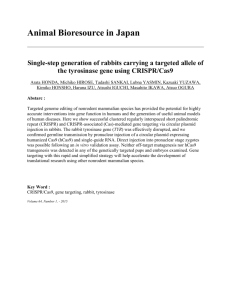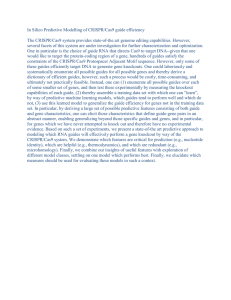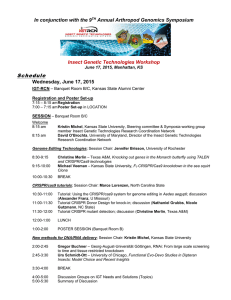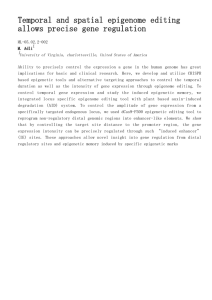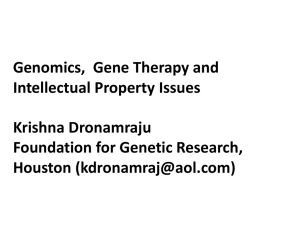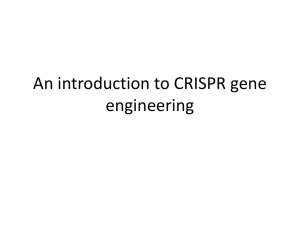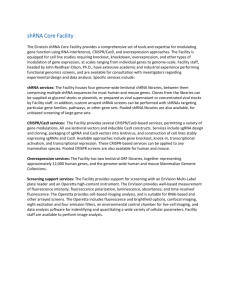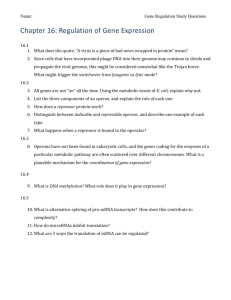Correction of Dystrophin Mutations by CRISPR/Cas9 Charles
advertisement
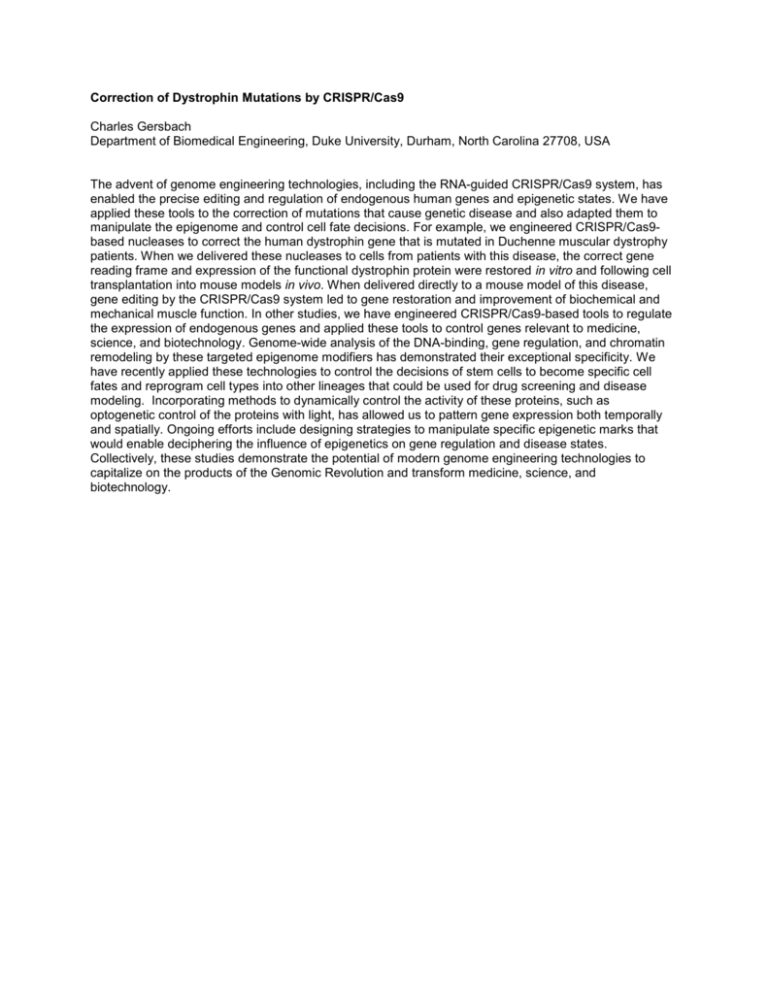
Correction of Dystrophin Mutations by CRISPR/Cas9 Charles Gersbach Department of Biomedical Engineering, Duke University, Durham, North Carolina 27708, USA The advent of genome engineering technologies, including the RNA-guided CRISPR/Cas9 system, has enabled the precise editing and regulation of endogenous human genes and epigenetic states. We have applied these tools to the correction of mutations that cause genetic disease and also adapted them to manipulate the epigenome and control cell fate decisions. For example, we engineered CRISPR/Cas9based nucleases to correct the human dystrophin gene that is mutated in Duchenne muscular dystrophy patients. When we delivered these nucleases to cells from patients with this disease, the correct gene reading frame and expression of the functional dystrophin protein were restored in vitro and following cell transplantation into mouse models in vivo. When delivered directly to a mouse model of this disease, gene editing by the CRISPR/Cas9 system led to gene restoration and improvement of biochemical and mechanical muscle function. In other studies, we have engineered CRISPR/Cas9-based tools to regulate the expression of endogenous genes and applied these tools to control genes relevant to medicine, science, and biotechnology. Genome-wide analysis of the DNA-binding, gene regulation, and chromatin remodeling by these targeted epigenome modifiers has demonstrated their exceptional specificity. We have recently applied these technologies to control the decisions of stem cells to become specific cell fates and reprogram cell types into other lineages that could be used for drug screening and disease modeling. Incorporating methods to dynamically control the activity of these proteins, such as optogenetic control of the proteins with light, has allowed us to pattern gene expression both temporally and spatially. Ongoing efforts include designing strategies to manipulate specific epigenetic marks that would enable deciphering the influence of epigenetics on gene regulation and disease states. Collectively, these studies demonstrate the potential of modern genome engineering technologies to capitalize on the products of the Genomic Revolution and transform medicine, science, and biotechnology.
